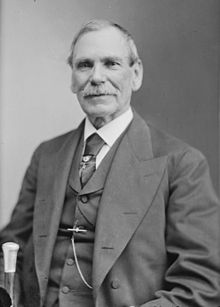The Minnesota Portal Minnesota (/ˌmɪnəˈsoʊtə/ ⓘ MIN-ə-SOH-tə) is a state in the Upper Midwestern region of the United States. It is bordered by the Canadian provinces of Manitoba and Ontario to the north and east and by the U.S. states of Wisconsin to the east, Iowa to the south, and North Dakota and South Dakota to the west. It is the 12th-largest U.S. state in area and the 22nd-most populous, with about 5.8 million residents. Minnesota is known as the "Land of 10,000 Lakes"; it has 14,420 bodies of fresh water covering at least ten acres each. Roughly a third of the state is forested. Much of the remainder is prairie and farmland. More than 60% of Minnesotans (about 3.71 million) live in the Minneapolis–Saint Paul metropolitan area, known as the "Twin Cities", which is Minnesota's main political, economic, and cultural hub and the 16th-largest metropolitan area in the U.S. Other minor metropolitan and micropolitan statistical areas include Duluth, Mankato, Moorhead, Rochester, and St. Cloud. Minnesota, which gets its name from the Dakota language, has been inhabited by various Native Americans since the Woodland period of the 11th century BCE. Between roughly 200 and 500 CE, two areas of the indigenous Hopewell tradition emerged: the Laurel complex in the north, and Trempealeau Hopewell in the Mississippi River Valley in the south. The Upper Mississippian culture, consisting of the Oneota people and other Siouan speakers, emerged around 1000 CE and lasted through the arrival of Europeans in the 17th century. French explorers and missionaries were the earliest Europeans to enter the region, encountering the Dakota, Ojibwe, and various Anishinaabe tribes. Much of what is now Minnesota formed part of the vast French holding of Louisiana, which the United States purchased in 1803. After several territorial reorganizations, the Minnesota Territory was admitted to the Union as the 32nd state in 1858. Minnesota's official motto, L'Étoile du Nord ("The Star of the North"), is the only state motto in French. This phrase was adopted shortly after statehood and reflects both the state's early French explorers and its position as the northernmost state in the contiguous U.S. As part of the American frontier, Minnesota attracted settlers and homesteaders from across the country. Its growth was initially based on timber, agriculture, and railroad construction. Into the early 20th century, European immigrants arrived in significant numbers, particularly from Scandinavia, Germany, and Central Europe. Many were linked to the failed revolutions of 1848, which partly influenced the state's development as a center of labor and social activism. Minnesota's rapid industrialization and urbanization precipitated major social, economic, and political changes in the late 19th and early 20th centuries; the state was at the forefront of labor rights, women's suffrage, and political reform. Consequently, Minnesota is relatively unique among Midwestern states in being a reliable base for the Democratic Party, having voted for every Democratic presidential nominee since 1976, longer than any other U.S. state. (Full article...) Entries here consist of Good and Featured articles, which meet a core set of high editorial standards.
 James Shields (May 10, 1806 – June 1, 1879) was an Irish American politician and United States Army officer, who is the only person in U.S. history to serve as a Senator for three different states, and one of only two to represent multiple states in the U.S. Senate. A member of the Democratic Party, Shields represented Illinois from 1849 to 1855, in the 31st, 32nd, and 33rd Congresses, Minnesota from 1858 to 1859, in the 35th Congress, and Missouri in 1879, in the 45th Congress. Born and initially educated in Ireland, Shields emigrated to the Americas in 1826. He was briefly a sailor, and spent time in Quebec, before settling in Kaskaskia, Illinois, where he studied and practiced law. In 1836, he was elected to the Illinois House of Representatives, and later as State Auditor. His work as auditor was criticized by a young Abraham Lincoln, who (with his then fiancée, Mary Todd) published a series of inflammatory pseudonymous letters in a local paper. Shields challenged Lincoln to a duel, and the two nearly fought on September 22, 1842, before making peace, and eventually becoming friends. (Full article...) Selected article -Fort Snelling is a former military fortification and National Historic Landmark in the U.S. state of Minnesota on the bluffs overlooking the confluence of the Minnesota and Mississippi Rivers. The military site was initially named Fort Saint Anthony, but it was renamed Fort Snelling once its construction was completed in 1825. Before the American Civil War, the U.S. Army supported slavery at the fort by allowing its soldiers to bring their personal enslaved people. These included African Americans Dred Scott and Harriet Robinson Scott, who lived at the fort in the 1830s. In the 1840s, the Scotts sued for their freedom, arguing that having lived in "free territory" made them free, leading to the landmark United States Supreme Court case Dred Scott v. Sandford. Slavery ended at the fort just before Minnesota statehood in 1858. (Full article...) General images -The following are images from various Minnesota-related articles on Wikipedia.
Did you know -
Related portalsTopicsLargest cities
CategoriesNew articlesThis list was generated from these rules. Questions and feedback are always welcome! The search is being run daily with the most recent ~14 days of results. Note: Some articles may not be relevant to this project.
Rules | Match log | Results page (for watching) | Last updated: 2025-01-11 21:13 (UTC) Note: The list display can now be customized by each user. See List display personalization for details.
WikiProjectsTasks
Associated WikimediaThe following Wikimedia Foundation sister projects provide more on this subject:
Sources
Discover Wikipedia using portals |















































